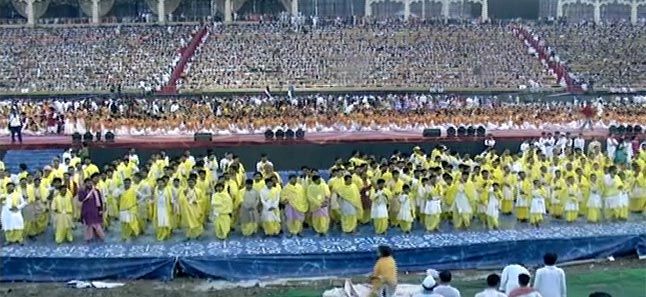The tragic events of Blussels have once again plunged the world into mourning. And as the world grope in the dark for any clue, a raging debate has begun whether the doctrine of multiculturalism is making Europe vulnerable to such attacks. “Terrorist attacks like this (Brussels) only happen in multi-racial, multi-ethnic nations. Homogeneity is safety, multiculturalism is death,” went a tweet immediately after the attack.
If this were to be true, then the world is doomed. Diversity is the nature of this creation. “Cultural diversity between as well as within countries is as essential for humankind as biodiversity is for nature,” concluded the UNESCO World Report on Investing in Cultural Diversity and Intercultural Dialogue 2008. The notion that everybody should follow the same ideology, same god, same culture and the like is at the root of fanaticism that is fueling terrorism in the world.
Rather than homogeneity, what the world needs today is a platform for fostering mutual understanding and promoting interculturalism. Mere passive acceptance of multiple cultures existing side by side isn’t going to be enough. The need of the hour is for a structure for interactions and sharing of cultures. Unfortunately, there has been very little effort in this direction. The 2008 UNESCO report rued this as much.
That’s what makes the resounding success of the recently concluded World Culture Festival (WCF) of the Art of Living a landmark in the arduous pursuit of peace in the world. Just the sheer influence and diversity of the gathering is enough to ignite fresh hope in a fractured world. Over 3.7 million people from over 150 countires coming together for cultural unity in a highly polarised world is no mean symbolism. Add to it the report of the festival being watched online in 188 countires at as many as 767,436 unique locations!
The underlying vision of using a culture festival as a medium for sending the message that the whole one world is one family (VasudhaivaKutumbakam) is revolutionary. Traditional modalities of interactions between cultures have largely failed because of their excessive focus on what cultures have in common. The present crisis calls for dialogue on differences and celebration of diversity. And, that’s where Gurudev’s festival triumphed. Over 90 cultural performances from every corner of the world and India and nearly 36,000 artists being cheered by each other and by the huge gathering gave the hope that the world can come together to celebrate its inherent diversity. The standing ovation that the Pakistani troupe got from a predominantly Indian crowd was just an example of how culture can thaw even long-drawn differences.
“The festival brought together people from across cultures in a spirit of celebration and reinforced the underlying bonds among cultures of the world. Coming together of such diverse cultures in a space of celebration and collaboration is a very encouraging sign for humanity,” recalls Gurudev.
The Art of Living’s vision for cultural diplomacy is not out of sync. Only last year, the European Union had emphasised the crucial contribution culture makes towards opening minds and promoting tolerance, intercultural dialogue, social integration and mutual respect. It concluded one of the foremost responses which Europe should provide to intolerance, xenophobia, obscurantism, fanaticism of all kinds and radicalization lies in culture. When traditional avenues of uniting people such as games and sports, business and industry and faith and religion have miserably failed, the success of WCF is something to cheer for the world.
The festival proved that when culture is seen in its totality to include the intellectual, spiritual, artistic and religious values of a society, it holds a lot of promise of connecting people of different denominations. By bringing together hundreds of religious leaders to share the essence of their faiths and spread the message that every religion has a common message to communicate, the festival signalled a convincing assault on the very root of rising fanaticism in the world.
To hear everybody from Grand Mufti of Syria to representation from Holy See (Vatican) to Buddhist monks to scores of saints from all religions speak in one voice of unity and offer words of wisdom to quarantine the most dangerous virus of our times was reassuring. Their unanimous denouncement of religious bigotry would works as an antidote to radicalisation and indoctrinations.
The only hope of effectively checking fanaticism that fuels the ideology of terror is in taking the message of cultural pluralism to the masses in a medium that is acceptable to people of diversified beliefs and opinions. Gurudev has done that very effectively with his cultural fête.
(The article is the personal view of M Rajaque Rehman. It does not represent the stand of Network18. Rehman worked as a journalist for close to a decade before he became an Art of Living teacher.)
Courtesy: IBN Live
